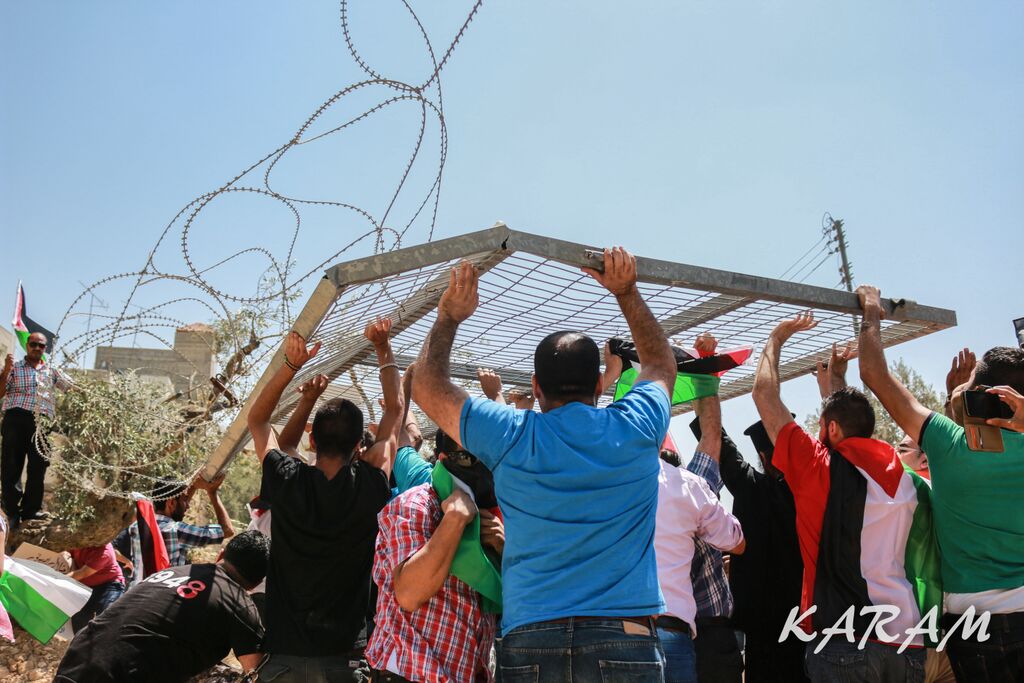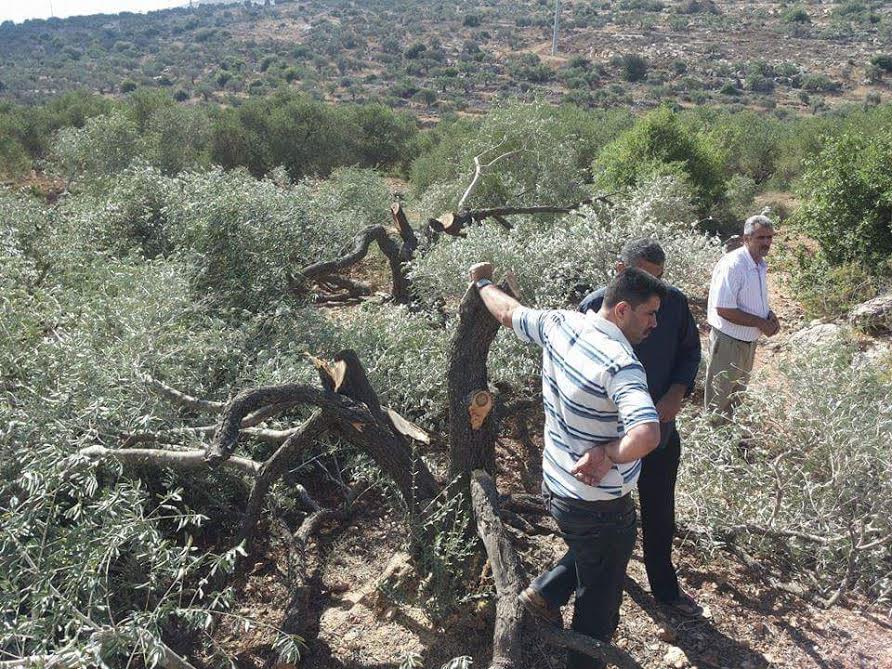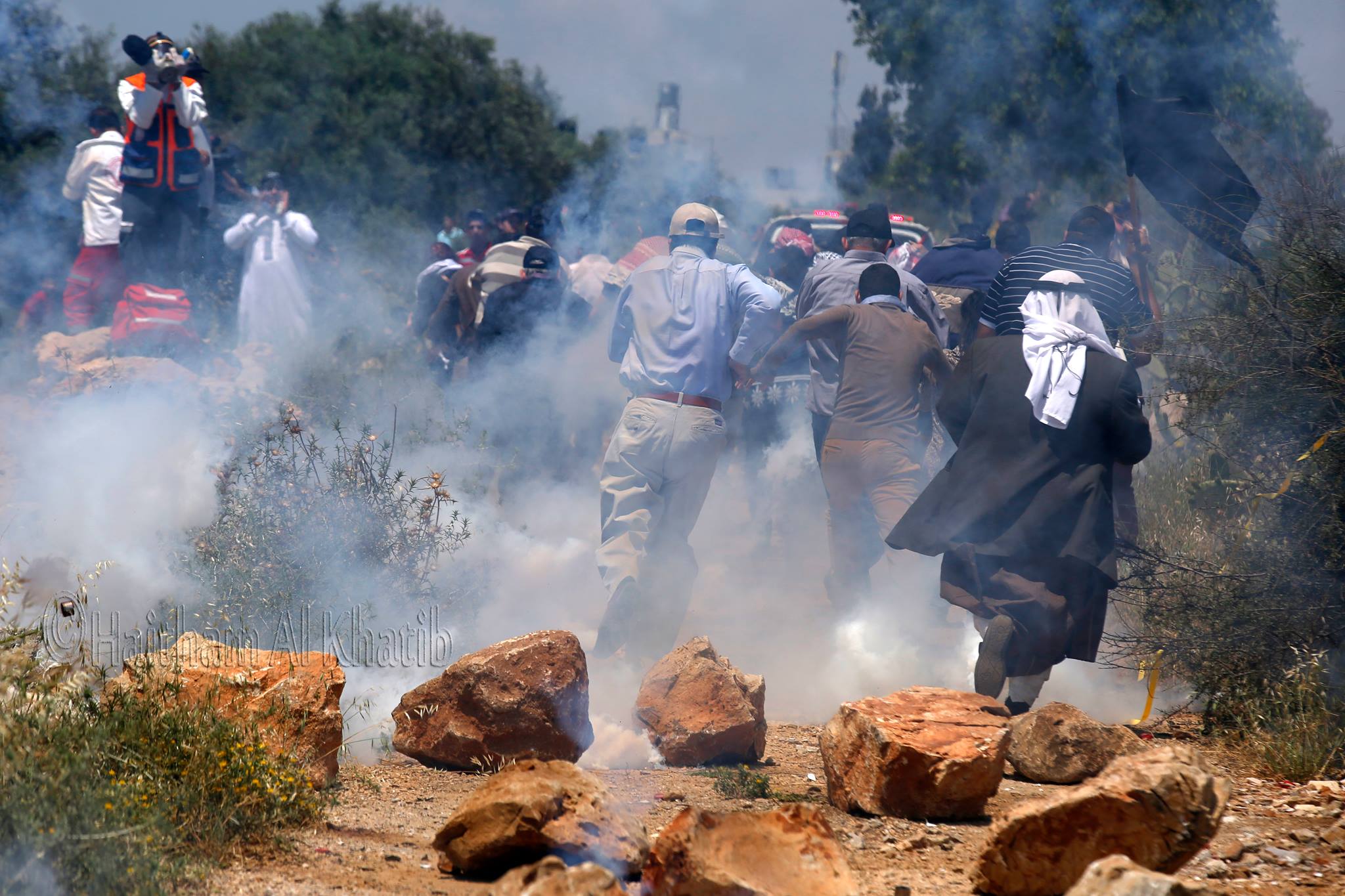Tag: Olive Trees
-

Hundreds protest against Israeli seperation wall in Bait Jala
Sunday morning around 300 Palestinians and Internationals demonstrated side by side to block the uprooting of olive yards related to the construction of the apartheid-wall. The protesters where all non-violent and all stood up for the Palestinians rights and for a free Palestine. Protesters successfully removed the illegal metal fence, which was put up by the…
-

Israeli settlers use chainsaw to destroy over 60 olive trees near Nablus
23rd June 2015 | International Solidarity Movement, Huwwara Team | Nablus, Occupied Palestine On Sunday, 21st of June, residents of the Jamma’in village in the Nablus region discovered that Israeli settlers had cut down over 60 Palestinian owned olive trees. They suspect that the trees had been destroyed the previous day with a chain saw.…
-

Day of Rage: commemorating Nakba day in Ni’lin
15th May 2015 | International Solidarity Movement, Al Khalil Team | Ni’lin, Occupied Palestine On Friday 15th May 2015, hundreds of Palestinians from all over the West Bank traveled to Ni’lin for a mass protest commemorating the 1948 Nakba (‘catastrophe’). The local villagers were joined by a large amount of other Palestinian protesters, as well as Israeli and international solidarity…
